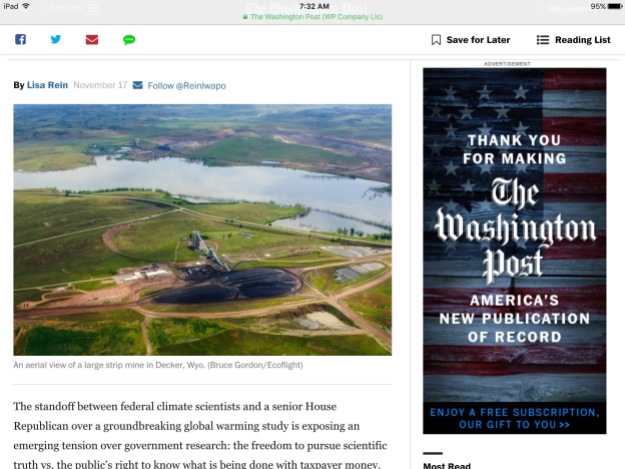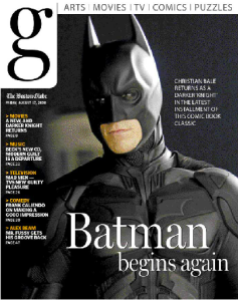Also published at WGBHNews.org.
This past Wednesday, Boston Globe editor Brian McGrory sent a long memo to his staff about steps the Globe will take to respond to issues of race and equity — both in the paper’s coverage and the diversity of its newsroom.
So far, at least, the Globe has been able to avoid the sort of public turmoil over race that the Los Angeles Times and The Washington Post, among other news organizations, have experienced. But the Globe has long suffered from a lack of people of color in leadership positions. The last ranking Black editor, Greg Moore, left for The Denver Post in 2002 several months after losing out on the top position to Marty Baron. (The Globe’s opinion pages are led by Bina Venkataraman, who is Indian American.)
A couple of other points. First, although McGrory sent this out on Wednesday, no one leaked it to me until late Thursday. I don’t know the outcome of the Thursday presentation McGrory refers to. If someone at the Globe would like to send something along, I’d love to see it. I’d consider publishing an anonymous report as long as I knew who it was from.
Second, toward the end McGrory mentions wanting the Globe to adopt what amounts to a “right to be forgotten” for people who’ve been charged or even convicted of minor crimes. This sounds like an excellent idea as long as news stories aren’t going to be deleted from the archives.
Before the web, print editions soon disappeared into microfilm collections that were virtually impossible to search, which meant that the sort of minor incidents McGrory is referring to could not be easily found by, say, prospective employers. We need some way of returning to those days of semi-privacy without destroying the historical record.
What follows is the full text of McGrory’s memo.
Updates and plans
Hey all,
We’ll start with a request: Everyone should do everything possible to attend Thursday’s presentation of the company’s inclusion council. You’ve received an invitation under separate cover for an 11 a.m. Zoom call. The group will share findings and insights that may be hard to hear, but are vitally important to know, so I’d urge you all to participate.
Beyond that, we agreed at our town meeting a few weeks back that discussions about race, even and especially discussions involving deeply uncomfortable truths, are utterly vital. Since then, I’ve been fortunate to have had a good number of one-on-one conversations and small group discussions with people in the room, all of which have been eye-opening to the point of being invaluable. While all these exchanges are important, they are but a start. The real marker of this moment will be the actions that we take. So here, I’d like to outline some of the plans for the newsroom going forward. They are not the final word. They are a starting point, something that will ideally serve as our foundation for durable progress.
Recent assignments
In terms of our coverage, some key assignments have already been made and are worth sharing with you now. We launched a criminal justice team to look at the underlying racism in law enforcement that has served as the tipping point in the protests and calls for action. About two weeks old, it’s already had remarkable impact with stories on outrageously high overtime payments and ballooning payrolls, police officers on the streets despite numerous civilian complaints, a T officer who quietly resigned after abusing a homeless man, the acquisition by Boston Police of more miltary-style equipment, and clear-eyed looks at the push to defund. There is much more on the way. That team includes Milton Valencia, Vernal Coleman, Evan Allen, Tonya Alanez, Andrew Ryan, and Evan Allen, with strong assists from Dugan Arnett, Laura Crimaldi, and Danny McDonald. It’s led by Brendan McCarthy and Nestor Ramos, in a pitch-perfect example of cross-department collaboration. We are past time giving Boston Police and other law enforcement the scrutiny they warrant; this team is already addressing that.
If we focus only on criminal justice, we have failed in our mission to address core issues of racial inequality in and around Boston, one of the most unequal places on the planet. This, as we’ve discussed for years, should be a part of everyone’s beat, whether you cover the environment, the arts, sports, transportation, retail, or real estate. It’s especially vital in primary education, where society blithely accepts systems that are profoundly unequal. We have a strong education team already in place. Naomi Martin will join it, and the indefatigable Felicia Gans will also play a pivotal role ramping up the digital presence as part of her broader portfolio. Felice Belman will now help editor Sarah Carr with oversight.
In addition, we’ve asked Deanna Pan, Zoe Greenberg, Dasia Moore, and Jenee Osterheldt to focus a good part of their time and creative energy on broader racial and social injustice issues, including that wide space where race and COVID collide. And our business staff will remain focused on the epic economic injustices that are prevalent in this region.
Before, during, and after the recent town meeting, many colleagues have been forthright and generous with their insights and ideas. Not surprisingly, they’ve been really thoughtful — and really appreciated. Many of the plans below are pulled from these conversations, discussions with senior editors, and feedback from smaller groups. Again, there should and will be more to come.
• Cover the neighborhoods of color in and around Boston with more intensity — the culture, the economics, the challenges, the triumphs, the people, while also looking at broader stories about city life. We would assign at least one but likely more reporters to it, with strong editing guidance. We would also look for partnerships and innovative ways to get information to residents.
• Promote and/or hire Black editors and other editors of color to significant roles, including, but by no means limited to, the masthead. This is of paramount importance.
• Require a staff-wide work audit for racial representation. Each reporter, photographer, columnist, producer, and editor will be given the necessary time to look back six months and assess their work through a racial lens — how many people of color were subjects, how many were quoted as experts, how many were depicted in photographs and videos, and in what fashion?
Likewise, we’ll go through home pages and print section fronts, as well as the magazine, to see how often and in what ways we depicted Black people and other people of color.
This exercise is not meant to embarrass or penalize anyone. It’s to learn from our own work and create awareness of what we need to do. We’ll figure out a meaningful way to share the broader results.
Meantime, it is of the utmost importance for everyone to include a diverse range of voices in stories and to develop sources who don’t look like you. Jenee has worked up a strong list of Black sources to share, with an assist from Adrian [Walker] and Yvonne Abraham, to help people get started.
• We’ve had important success hiring star journalists of color over the past couple of years, but we are nowhere near where we want or need to be. We’ll redouble our efforts to make the newsroom more diverse, with a dual focus on retention and hiring.
• Make sure we dedicate the right resources to cover law enforcement agencies as a key part of our regular and ongoing coverage.
Internal changes
• Reframe our summer internship program, beginning in 2021, to a diversity internship and training program in which all participants will be students or recent graduates of color.
• Mandate that a specific proportion of our co-ops are students of color.
• Work with the Guild to amend the newsroom’s ethics policy to allow for participation in Black Lives Matter rallies by staffers.
• Form a newsroom advisory council to weigh in on coverage and initiatives that involve race issues.
• Explore outside funding for a training program for early-career journalists of color, in partnership with universities, nonprofits, and possibly other news organizations. This program would allow for the hiring of journalists for a predetermined tenure at the Globe involving intensive training, mentorship, and meaningful work while they are here.
One more
• Launch a ‘right to forget’ initiative that allows people to appeal their presence in a story from the Globe archives and ask for it to be de-linked from search engines. This includes, but is not limited to, someone charged and even convicted of non-violent crimes. Our journalism was never meant to be a permanent obstacle to someone’s success, with the worst decisions and moments in regular people’s lives accessible by a few keystrokes for the rest of time. This will be a complicated endeavor, involving a small committee and imperfect judgments, but it will be worthwhile.
There will undoubtedly be additional measures. And we will also be working closely in the newsroom with ReadySet, a diversity, equity, and inclusion consulting firm that has been smartly engaged by the Globe’s inclusion council to help the entire organization.
As tends to happen in this business, we find ourselves at the intersection of opportunity and responsibility. It’s on all of us to make the most of it and to have the strongest impact, meaning we have much work to do in the weeks ahead.
Please keep reaching out with your thoughts, insights, and ideas.
Brian
Talk about this post on Facebook.







